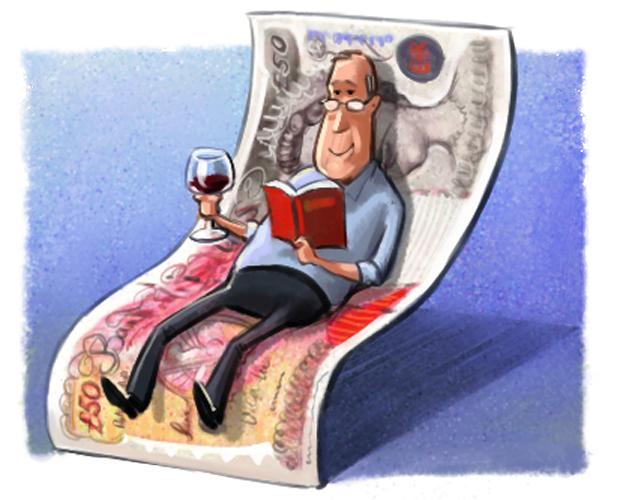Retirement
Your 10-step guide to early retirement joy

These handy tips will help you get your finances in order as you prepare to leave the workplace for good.
Early retirement is the ultimate dream for many people. If you are one of the lucky ones and are considering leaving the world of work, it is important to get your finances in order before you can put your feet up.
This handy checklist will help make sure you are as financially prepared as possible.
1. Maximise your pension
More and more people are retiring with some or all their pension in ‘defined contribution’ schemes which mean you will need to shop around using the Open Market Option or OMO to buy an income, usually in the form of an annuity.
“The difference between the best and worst rates can be significant and, once bought, it can’t be reversed so make sure you choose wisely,” says Stephen Lowe, group external affairs & customer insight director at Just Retirement.
2. Enhance your future
Anyone retiring early with health problems can potentially get a higher income by buying an enhanced annuity. You may get more for poor lifestyle factors such as smoking or obesity. So make sure you fully disclose your medical history.
3. Set a living budget
You might expect your living costs to fall but you will suddenly have a lot more time to fill. Travel, hobbies like golf and sailing, club memberships and more socialising can really make a dent in your wallet if you don’t take care.
4. Beware inflation
Plan for inflation – it can be the enemy of those on fixed incomes. “Even at 3% inflation the value of today’s money will halve within 25 years, making each year a bigger financial struggle,” Lowe says.
5. Check your entitlement
On-going reforms of the State Pension and benefits system mean it is vital to check your entitlement to make sure you don’t miss out by failing to claim or making poor decisions.
6. Go online
Even technophobes have a lot to be gained by becoming computer-savvy, not just to keep in touch with others but also to hunt out the best bargains and as a tool for keeping up to date with key information.
7. Have a back-up plan
Early retirement is a leap into the dark so try to keep your options open. Going part-time can help you road test retirement while keeping one foot in the world of work. For a financial safety net, homeowners should find out more about equity release as a way to release funds from their homes if the need should arise.
8. Review your National Insurance Contributions
If your partner has had to stay at home to look after dependents, and therefore has an incomplete National Insurance Contributions (NICs) record, this can reduce the amount of Basic State Pension (BSP) they receive at retirement. It could be possible to make NICs retrospectively in order to ensure that your partner’s State Pension is better than it would otherwise have been.
9. Save into a workplace scheme
If you are still in the workplace and not planning to retire for a couple of years, continue to make the most of company pension schemes – if you are lucky enough to have them – and even look into upping payments. Employer contributions and pensions tax relief mean that your own contributions are supplemented by the government and employer.
10. Consider equalising your pension pots
Even non-taxpayers have a tax-free pension contribution allowance of £240 per month net – taking into account the tax relief that is automatically granted.
If they structure their pensions and investments in order to utilise the tax-free allowance available to them, a couple over 65 could have more than £20k worth of tax-free income. For example, a husband who has worked for 40 years could transfer some of his pension savings into his stay-at-home wife’s name to ensure that they can ‘double’ the tax-free allowance available to them (or vice versa).
Pensions cannot be transferred between husband and wife (unless they get divorced!), so the best way to go about paying into your partner’s pension is by speaking to your pension provider/employer and asking them to divert some of your payments.
This should really be investigated several years before retirement – although ten years is ideal.
Vince Smith-Hughes, retirement expert at Prudential, says: “Pensions are one of the most tax efficient savings vehicles available but these efficiencies are not just limited to tax-relief on pensions savings. If a married couple are able to equalise their pension pots, huge amounts of money could potentially be saved in retirement by using both personal allowances which are more than £10,000 each for those over 65.
“However, this needs to be planned well in advice of retirement as it may involve having to reduce one party’s pension contribution to fund the other. The prize of more than £20,000 per couple of tax free income though is a good one, and worth planning for.
“By liaising with your pensions provider, it will be possible to divert some of your pension payments into your spouses’s pension. As well as ensuring that this doesn’t interfere with any additional employer contributions which you may receive, it is also important to consider this several years before retirement, in order for it to be worthwhile.”